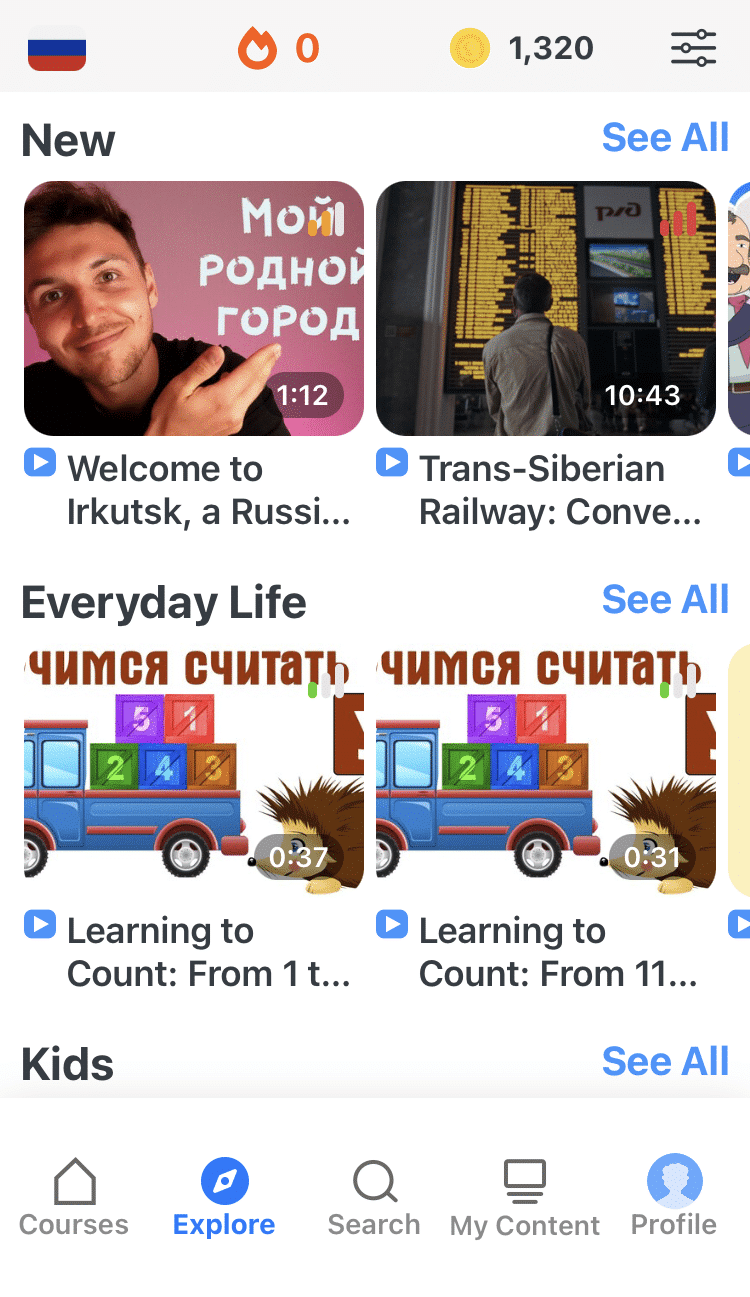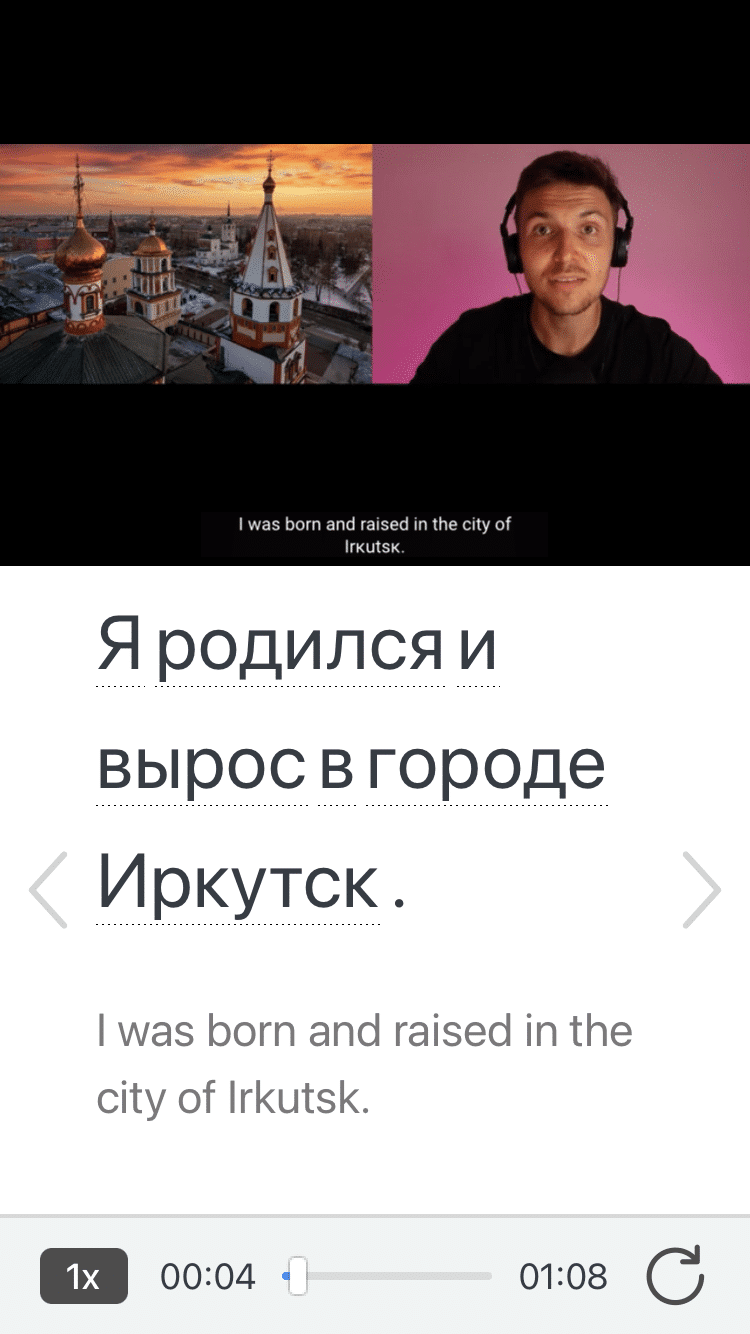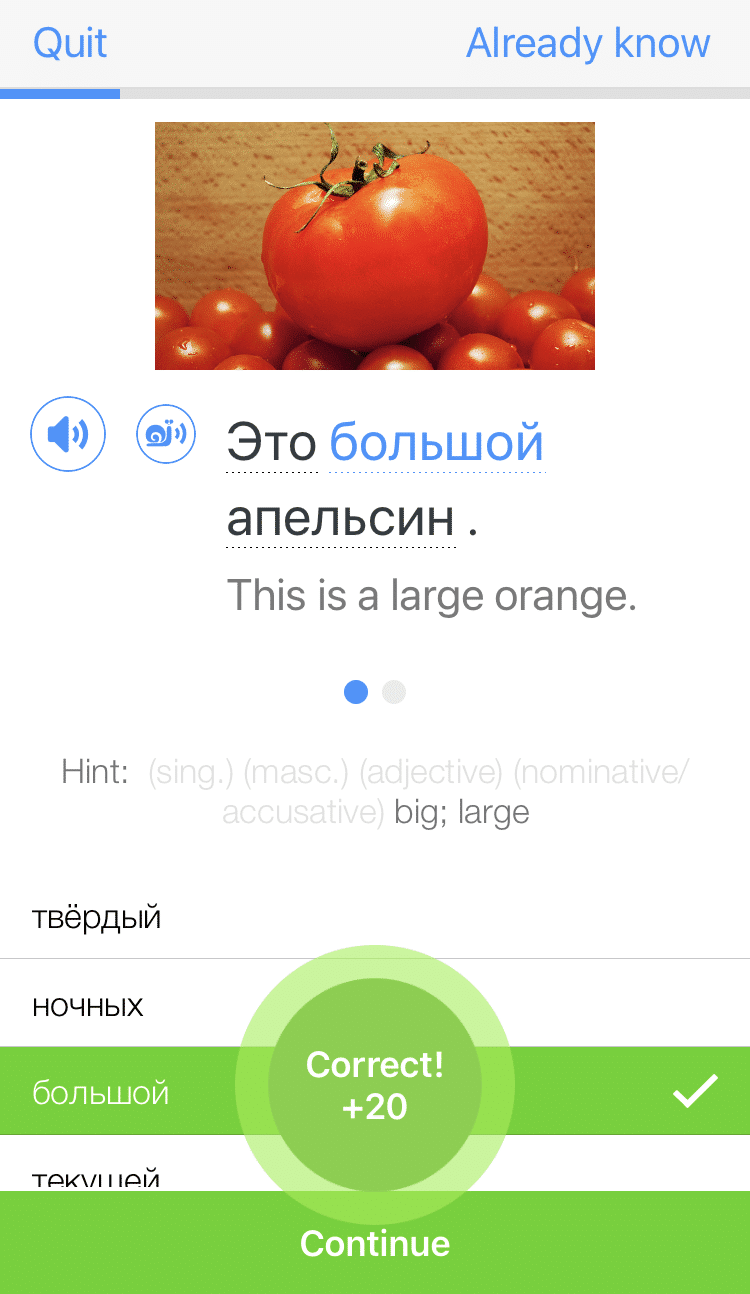
The Russian Days of the Week
I was particularly amused recently while watching “Downton Abbey,” when Maggie Smith’s character asked, “What is a weekend?”
Sadly, not everyone knows what a уикенд (weekend) is.
In fact, in late 1929, Stalin outlawed weekends in the Советский Союз (Soviet Union). Up until that time, Sundays were a day of rest. But in late September 1929, Stalin instituted the seven-day, continuous working week so that the Soviet factories and labor force would never sit idle. Fortunately, after 11 years, the program ended in June 1940.
Regardless of whether you prefer the weekend or dream of an early start to the workweek on Monday mornings, you should familiarize yourself with all the Russian days of the week.
You’ll also learn why the days were given their specific names, vital related vocabulary and much more!
Contents
- The Russian Days of the Week
- Prepositions Used with the Days of the Week
- Additional Russian Day Vocabulary
- день (day)
- позавчера (the day before yesterday)
- вчера (yesterday)
- сегодня (today)
- завтра (tomorrow)
- послезавтра (the day after tomorrow)
- рабочий день (workday)
- выходной день (day off)
- на прошлой неделе (last week)
- на этой неделе (this week)
- на следующей неделе (next week)
- Какой сегодня день? (What day is today?)
- В какой день? (On which day?)
- And One More Thing...
Download: This blog post is available as a convenient and portable PDF that you can take anywhere. Click here to get a copy. (Download)
The Russian Days of the Week
As expected, there are seven дни недели (days of the week) in Russian.
The Russian week starts on Monday, not Sunday, as in some places across the globe. Keep this fact in mind, because when looking at a Russian calendar, you’ll notice Monday is first.
In the 9th-12th centuries, when Russia was called Русь, седмица was the word for week due to the stem семь (seven). Now, the word for week is неделя.
As mentioned in the intro, you can use the word уикенд for “weekend.” However, a more standard way to say “weekend” is выходные (note that this word is actually plural).
Before we get started on the days of the week, it’s essential to note that they’re not capitalized in Russian unless, of course, the day is at the start of a sentence.
понедельник (Monday)
This word is old enough that when it came into existence, неделя still meant “Sunday,” not “week” as it does now in Russian. In fact, in all other Slavic languages some form of неделя means Sunday, since it literally means “not doing,” as in not working.
Abbreviations are often used on a календарь (calendar), so the shortened form of Monday is Пн.
вторник (Tuesday)
Does the word второй (second) look familiar? Most learners study their cardinal numbers first, but if you’re familiar with ordinal numbers, you probably recognize второй. Since Tuesday is the second day of the week, the word вторник is logical. The abbreviation for Tuesday is Вт.
среда (Wednesday)
The word среда is related to the word средний , which means “middle.” Wednesday is in the middle of the workweek, hence the name. Wednesday’s abbreviation is Ср.
четверг (Thursday)
Have you started to notice a pattern? Go back to your ordinal numbers again and think about the word for “fourth.” If you came up with четвёртый, you’re correct! Naturally, the abbreviation for Thursday is Чт.
пятница (Friday)
That’s right: пять equals “five,” and Friday is the fifth day. The abbreviation for Friday is Пт.
суббота (Saturday)
While most weekday names are easy to remember based on numbers, the weekend names are a little different. The word for Saturday, суббота, comes from ancient times when Saturday was the шаббат (Sabbath) and it was a day of покой (rest). Saturday’s abbreviation is Сб.
воскресенье (Sunday)
For воскресенье, the dictionaries seem to be in agreement that it’s related to a now-extinct root that meant “to get well” or “to recover.”
This day of the week sounds very similar to the word воскресение, which means “to rise from the dead,” or “resurrection.”
The USSR was considered one of the world’s most atheist states, but despite this reputation, Sunday continued to be called воскресенье. Even with the shunning of religion during the Soviet Era, more than 70% of Russians practice Russian Orthodoxy today. As you’d expect, Sunday’s abbreviation is Вс.
Note: Notice the slight spelling difference between воскресенье and воскресение? This is just to differentiate the day of the week from “resurrection.”
To recap the days of the week, check out this video by Antonia Romaker.
Before we move on to discussing how to use the days of the week grammatically, it’s worth mentioning that Russian days of the week have a gender and are declinable according to case.
There are several prepositions which are used with the days of the week to indicate when something is due to take place. Let’s take a closer look at them.
Prepositions Used with the Days of the Week
On x day: В(о) + day in the accusative case
As mentioned above, в(о) + the day in the accusative case is used to say “on x day.”
All of the days of the week use в except for Tuesday, which is written as:
во вторник (on Tuesday).
This is because it’s too difficult to say в + a word starting with в or ф, followed by another consonant. In this case, the о is added to в to make it easier to pronounce properly. You can read more about this on Russian for Everyone’s website.
There’s a colloquial way to say “on the weekend” that’s a little different from talking about individual days because it uses the prepositional case with the preposition на instead of в:
на выходных (on the weekend)
Note that if you want to use the standard way of saying “on the weekend,” you’d say:
в выходные (on the weekend)
This works exactly like with individual days, that is, в + accusative case.
Perhaps you want to convey to someone that you have a standing appointment, and thus each Monday, you do something. You could say:
По понедельникам у меня уроки русского с Катей. (On Mondays, I have Russian lessons with Katya.)
On x days: По + day in the dative plural
Keep in mind that for each day, the ending is ам, with the exception of the word “Sundays,” which has the ending ям. It’s written as:
по воскресеньям (on Sundays).
Also, the word “weekends” is already plural, so the ending is ым, which looks like:
по выходным (on weekends)
Another phrase that’s frequently used when talking about days of the week is the expression “from x to x.”
Со вторника по пятницу я буду в Минске по работе. (From Tuesday to Friday, I will be in Minsk for work.)
From x day until x day: С(о) + day in the genitive case + до + day in the genitive case
This one is pretty straightforward. One example of using this formula is as follows:
со вторника до среды (from Tuesday until Wednesday)
Again, similarly to how в becomes во before вторник, the с becomes со before вторник in this case. But unlike with в(о), the same rotation applies to среда. This means you say:
в среду (on Wednesday) but со среды (from Wednesday)
Additional Russian Day Vocabulary
While it’s necessary to master the seven days of the week, you’ll need some additional vocabulary in order to speak about the days in relation to one another.
Here are some of the basics that’ll help you discuss the chronological order of days, along with some example sentences.
день (day)
Сегодня красивый день на улице. (Today is a beautiful day outside.)
позавчера (the day before yesterday)
Позавчера я написал новое сообщение в блоге. (The day before yesterday, I wrote a new blog post.)
вчера (yesterday)
Вчера я говорила с моим братом по Скайпу. (Yesterday, I spoke with my brother on Skype.)
сегодня (today)
Сегодня пятница. (Today is Friday.)
завтра (tomorrow)
У нас завтра контрольная в школе. (We have a test in school tomorrow).
послезавтра (the day after tomorrow)
Экзамен был отложен. Теперь экзамен послезавтра. (The exam was postponed. Now, the exam is the day after tomorrow.)
рабочий день (workday)
Я работаю в ресторане, поэтому суббота для меня рабочий день. (I work in a restaurant, so Saturday is a workday for me.)
выходной день (day off)
Ресторан закрыт в понедельник, поэтому у меня выходной день. (The restaurant is closed on Monday, so I have the day off.)
Similar to discussing days in relation to one another, it’s helpful to be able to discuss the chronology of weeks as well. Below are the most important phrases.
на прошлой неделе (last week)
На прошлой неделе я купила новый дом. (Last week, I bought a new home.)
на этой неделе (this week)
На этой неделе у меня встреча в банке. (This week, I have a meeting at the bank.)
на следующей неделе (next week)
На следующей неделе я переезжаю! (Next week, I’m moving!)
In addition to the above phrases and day vocabulary, there are a couple of questions you should know when talking about the days of the week. They’re as follows:
Какой сегодня день? (What day is today?)
This one is quite simple and self-explanatory.
В какой день? (On which day?)
You might use this phrase if you’re speaking to someone about organizing plans. In response to “В какой день?” you’d answer with the preposition в(о) + the day in the accusative case. For example:
Мой день рождения в среду. (My birthday is on Wednesday.)
You can check out this video by Ru-Land Club to hear some of the above vocabulary, as well as phrases that use the Russian days of the week.
https://www.youtube.com/watch?v=sZcAXQYl_ls
Now that you’re familiar with the days of the week, perhaps you think it’s best to rush out and start making appointments with all your new Russian friends. Maybe. But probably not.
Russians aren’t known for being tied to a calendar or their watches to the extent that many English speakers are. Time can be a bit more of relaxed concept in Russia than it is in certain other countries. Plans can change as the agreed-upon date approaches, so it’s always best to call and confirm a day or two in advance.
However, many people do still make plans far in advance (such as vacations and business trips), and being more than 15 minutes late to a meeting is considered rude. Of course, Russian trains also tend to run according to schedule (98% of the time), so if nothing else, it’s a safe bet to pencil in your travel times.
And in any case, knowing the Russian days of the week is essential, so this is one task you can cross off your calendar!
Download: This blog post is available as a convenient and portable PDF that you can take anywhere. Click here to get a copy. (Download)
And One More Thing...
If you love learning Russian and want to immerse yourself with authentic materials from Russia, then I should also tell you more about FluentU.
FluentU naturally and gradually eases you into learning the Russian language and culture. You'll learn real Russian as it's spoken by real Russian people!
FluentU has a very broad range of contemporary videos. Just a quick look will give you an idea of the variety of Russian-language content available on FluentU:

FluentU makes these native Russian videos approachable through interactive transcripts. Tap on any word to look it up instantly.

Access a complete interactive transcript of every video under the Dialogue tab. Easily review words and phrases with audio under Vocab.

All definitions have multiple examples, and they're written for Russian learners like you. Tap to add words you'd like to review to a vocab list.
And FluentU has a learn mode which turns every video into a language learning lesson. You can always swipe left or right to see more examples.

The best part? FluentU keeps track of your vocabulary, and gives you extra practice with difficult words. It'll even remind you when it’s time to review what you’ve learned. You'll have a 100% personalized experience.
Start using the FluentU website on your computer or tablet or, better yet, download the FluentU app from the iTunes or Google Play store. Click here to take advantage of our current sale! (Expires at the end of this month.)


